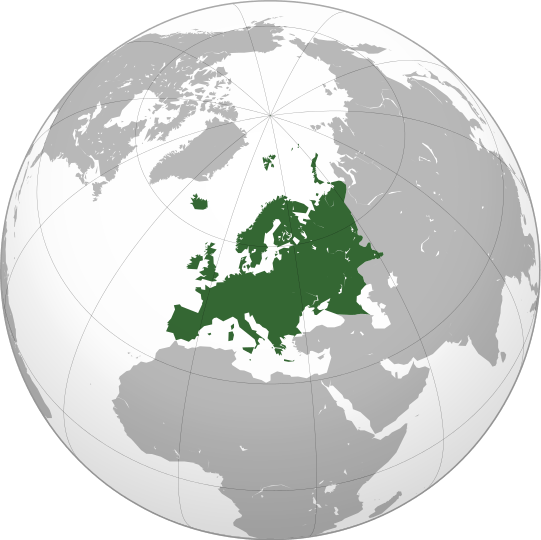Η Αρμενία μεταξύ Ευρωπαϊκής Ένωσης και Μόσχας

By IWPR
September 16, 2013
By Arpi Harutyunyan
President Serzh Sargsyan’s announcement that Armenia wants to join the Customs
Union, a free trade bloc led by Russia,
seems to fit with the country’s longstanding ties with Moscow. But it has caused consternation among
those who fear the deal will derail plans for closer ties with the European
Union.
Sargsyan made the announcement after meeting his Russian counterpart
Vladimir Putin in Moscow
on September 3. He also said Armenia
would like to be part of the Eurasian Economic Union, a more ambitious
Moscow-led grouping that is still at the planning stage.
The Customs Union’s current members are Russia, Belarus and Kazakstan. Kyrgyzstan is
expected to join next year.
At a discussion held at the Media Centre in Yerevan, Samvel Nikoyan, а member of the
ruling Republican Party, said the idea of joining the free trade bloc was the
Armenian government’s own initiative, not something that had been imposed on
it.
The idea of joining was first floated by Energy Minister Armen Movsisyan
in late June. (See Armenia
Weighs Foreign Economic Partnerships.) Previously, government officials had
dismissed the possibility. In April 2012, for example, Prime Minister Tigran
Sargsyan told a Russian newspaper that joining would be “senseless” because Armenia did not
share a land border with any other Customs Union member.
As late as August 21 this year, Deputy Foreign Minister Shavarsh
Kocharyan said on a local TV station that entering the bloc would mean “saying
goodbye to one’s sovereignty”.
On September 5, however, Kocharyan retracted the remark in an interview
for RFE/RL, saying instead that “Customs Union membership means a reduction in
sovereignty in making independent decisions. That applies to any customs union,
and it concerns customs policy and tariffs”.
Kocharyan insisted that the decision had not been forced on Armenia by the
Kremlin.
“That is not the case. You’re missing the entire point,” he told his
interviewer. “There were many matters that needed resolving….But after
comprehensive talks, you ultimately weigh everything up, for and against, and
in sum, it is to our advantage”.
Nevertheless, the decision caused some consternation since it followed
closely on the successful conclusion of negotiations with the European Union on
an “association agreement” which will give Armenia preferential terms of
trade. (See Armenia
Takes One Step Towards Europe.)
The question as yet unanswered is how the different sets of trade
tariffs can be reconciled.
Speaking on September 5, the EU commissioner for enlargement and
neighbourhood policy, Štefan Füle, questioned whether Armenia’s
association agreement with Brussels
would be compatible with membership of the Customs Union. Elmar Brok, who
chairs the European Parliament’s foreign affairs committee, said that trying to
be part of both free-trade systems was “really impossible”.
Meanwhile, Vigen Sargsyan, head of the presidential administration,
insisted that plans to enter the Customs Union would neither block nor delay
progress towards the association agreement, which is expected to be signed in
the Lithuanian capital Vilnius
in November.
Republican politician Nikoyan said it should be possible to do both,
given that free access to European markets would only come after ten to 15
years.
“In any case, Europe mustn’t slam the
door shut,” he said at the Media Centre debate. “Armenia believes that it needs to
combine both these directions as far as is possible.”
The Republicans’ coalition partner, Rule of Law, issued a statement
backing the decision to join the Customs Union, in light of Armenia’s
strategic partnership with Russia.
At the same time, it indicated that the EU was ultimately the better bet as a
trading partner. The statement noted that Armenian exports to Russia, Belarus and
Kazakstan combined added up to 290 million US dollars last year, compared with
revenues of 560 million from sales to EU members.
Opposition parties slammed the president’s announcement, saying they
believed it had done serious harm to future trade relations with Europe.
The Free Democrats, for example, warned that “Armenia will lose important facets
of its independence such as the opportunity to pursue an independent foreign
policy and to function autonomously on financial and economic matters”.
The Dashnaktsyutun party concluded that the only reason the government
had gone for the Customs Union membership must have been to secure pledges of
Russian support for its own security and that of Nagorny Karabakh. Ever since
becoming independent, Armenia
has maintained strong security ties with Moscow
because of its hostile relationship with Azerbaijan.
Within hours of Sargsyan making his comments in Moscow, a Facebook group had formed calling
itself “We are against Customs Union with Russia”. A few hundred members
gathered outside the president’s offices in Yerevan to make their concerns heard on
September 4 and again on September 10.
In Armenia,
few analysts saw Customs Union membership as unambiguously good news.
“This was a strategic mistake, an important opportunity that has been
lost,” Richard Giragosian, director of the Regional Studies Centre in Yerevan said. “A major
foreign policy error has been committed that places the entire future of
reforms in doubt.”
Giragosian believes that the door to the EU is now “closed but not
locked”.
Sergei Minasyan, deputy director of the Caucasus Institute in Yerevan, was more
optimistic, saying that Sargsyan’s meeting with Putin did not amount to a
“watershed in Armenia-EU relations”.
Arpi Harutyunyan is
a correspondent for the Armnews website. This article was published at IWPR’s CRS Issue 701.
Author: IWPR
The Institute for War and Peace
Reporting gives
voice to people at the frontlines of conflict and transition to help them drive
change. IWPR empowers citizens and their communities to make a difference —
building their skills, networks and institutions, supporting development and
accountability, forging peace and justice.


 Ακολουθήστε το
Ακολουθήστε το